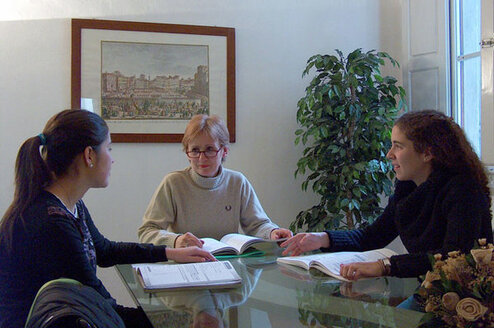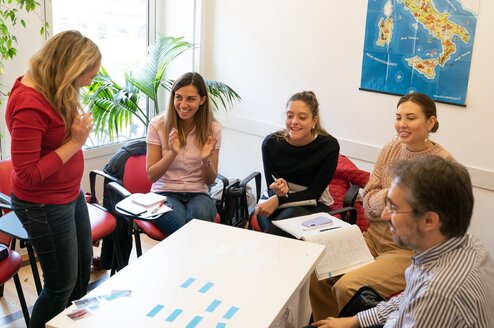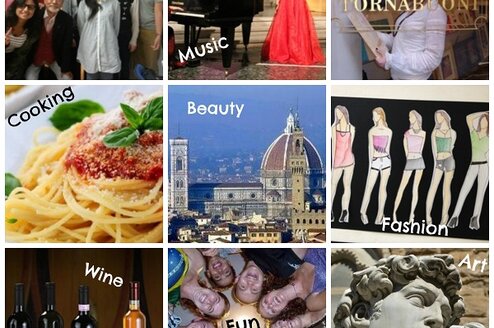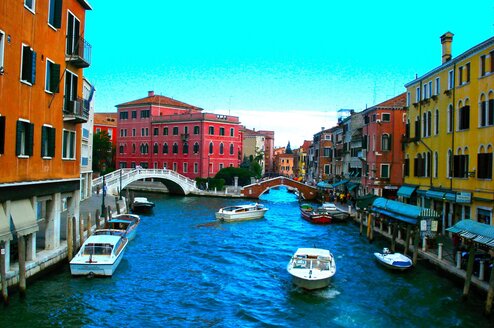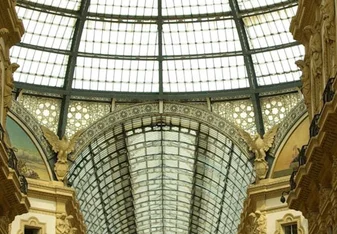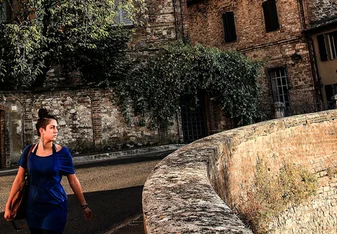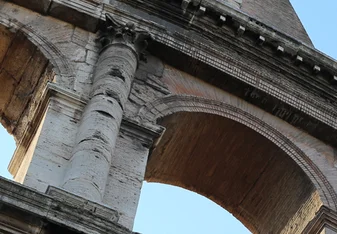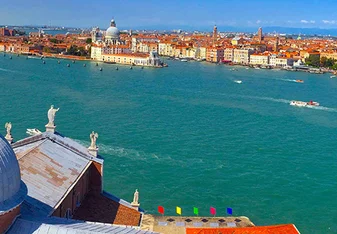Study Abroad Programs in Florence, Italy
Study Abroad Programs in Florence
Pagination
About
Droves of international students flood Florence each semester for its abundance of art, ease of transport, historic impact on the world, and distinctly charming culture. Italy’s food, language and beauty have long captivated visitors, but students thrive in Florence specifically as a result of its livability and unmatched artistic relevance. Nothing transforms a destination into a home like exploring the entire city on foot. Discovering the array of native art forms while learning in one of over 25 university campuses will invaluably enhance an undergraduate (or even graduate) education. These opportunities, plus uniquely Florentine dining, shopping, and attractions, make attachment inevitable in the inspiring capital of Italy's Tuscany region!
Planning Your Trip
Once you are rightfully determined to study in Florence, consider what you would like to study, which programs offer this interest, and whether you prefer to be affiliated with a particular university or an independent program. Evaluate the pricing, housing, and curriculum of each program, and make sure that your credits will be transferable. Then start early on the paperwork to have your passport, student visa, tuition, and accreditation taken care of. Many companies assist with this process and make it as easy as possible. Many resources are available that will help you to choose the right study abroad program.
Language
There’s nothing Italians respect more than visitors learning their language, and it certainly helps you get around. Italiano is one of the world’s most enchanting languages and well worth a course both before going and while you are in Italy. After all, there is no better place to practice!
Students can include a course in their program credits or study individually whether in a study group, with a local tutor, or at a language school. Popular institutions are Lorenzo De’Medici and Societa Dante Alighieri. If you haven’t fallen in love with Italian language and culture yet, read Dianne Hales’ La Bella Lingua and you’ll be ready to leave tomorrow.
Academics
Whether you’re majoring in art or need one gen-ed course, discovering the original material completely surrounding you is an incomparable experience. Students can’t help but develop a personal appreciation for the people and history behind the sculptures, paintings and architecture at the very site of the Renaissance.
Other offerings generally include anything in the arts and humanities, some social courses, design and fashion, and even marketing. Many American universities send their professors abroad each semester, but local professors are a great resource as much for advice and experience as they are for language practice. Professors can have any level of English skills and working to understand each other is a great way to help boost your Italian language skills.
Class schedules are important to consider when choosing your courses. Often, classes are long and intense in the summers so students can have Friday’s off and long breaks in between. Fall and spring schedules can also be condensed to optimize your time in the city and any weekends spent traveling. Tip: If traveling with a group, it helps to coordinate these schedules before registering.
Housing
Most programs can provide housing arrangements, whether in home-stays, permanent dorms, villas in the country, or apartments in town. Pricing is usually in coordination with the total program fee when applicable, but it pays to shop around and compare if possible. Florence has tons of student apartments already furnished with weekly or monthly rates. The Florence Institute currently suggests budgeting 500-750 Euros ($650-1000) a month, but be sure to check with your program contacts.
Students need to take time to adjust to all the ways energy is limited in Italy ranging from laundry and appliances, to air conditioning and elevators. Anyone who has been to Florence in the summer can tell you that you're going to be hot no matter what. However, good travel should have you too immersed in the experience to worry about how you look!
Student Visas
Check with the local consulate near your permanent address about student visa requirements. You will need 4-6 weeks for a passport if you don’t have one and 2-6 weeks for the visa. The paperwork varies, but you’ll need the following materials notarized in both English and Italian: (Remember to make copies for your records)
- A valid passport
- Notarized copy of your driver’s license and student ID
- Program enrollment letter
- Official transcripts
- Affidavits of Insurance
- Letters of support
- Proof of financial support (usually a bank statement)
- Flight itineraries
- A self-addressed return envelope
- For more information on Visas, visit VISA HQ.
Highlights
Embrace the Experience
As a college student it can be nerve-wracking to think about missing out on a semester at school or a summer at home. The paperwork can be daunting, the cost overwhelming, and the unknown a bit scary. The best way to sell yourself on this opportunity is to ask anyone who studied abroad, anywhere. The immersion, growth, and education of an international semester is guaranteed to be one of the most memorable times in your life, and Florence is the perfect setting for the adventure!
Culture and Immersion
Attractions: Florence offers an abundance of historic churches and museums with world-renowned original art. Most notable are Caravaggio, Botticelli, Cimabue, and Giotto’s works in the Uffizi Gallery; Michelangelo’s David in the Accademia; the galleries of Palazzo Pitti and the adjoining Boboli Gardens; and the Duomo at the Santa Maria del Fiore cathedral. Students can’t miss climbing to the top of the Duomo for a breathtaking aerial view of Florence for 8 Euros.
The city is home to a dozen churches all with historic and artistic relevance. While certain classes may provide tours of particular museums or cathedrals, students can appreciate the architecture and broad appeal of the Medici Chapels, the church of Santa Croce, the Florence Baptistery, Santa Maria Novella, and the Church of San Marco.
Be sure to plan ahead by checking hours, holiday closings, and prices, and forego lines by purchasing tickets online in advance for a few extra Euros. Typically, touring a church or museum with a professor is free of charge, and schools will likely have this pre-planned. Keep in mind most cathedrals don’t permit sleeveless clothing, some provide pseudo-shawls to cover your shoulders, but others won’t permit entrance even after you’ve waited in line.
Dining & Shopping: While the city has every café, bakery, enoteca, gelateria, osteria, and trattoria imaginable, two spots have become absolute landmarks: Acqua al 2 (“due”) and Grom. Make reservations in advance for a nice dinner at Acqua al 2 where you’ll sample five pastas and blueberry steak, then head to Grom for the city’s most popular gelato. Frommer’s maintains a comprehensive list of restaurants with neighborhood, pricing, and ratings, but be sure to ask the locals for advice.
Shopping abounds from outdoor markets to luxury name brands. The Mercato Centrale, San Lorenzo Market, and the shops along the Ponte Vecchio cover everything from fresh groceries to clothing and leather products. Lonely Planet has an easily navigable breakdown of where to find whatever your little heart desires.
Socializing: Students typically meet in any of the city’s lively piazzas for dinner, drinks, and nightlife—Duomo square is popular with students from every different program. Pre-determining a central location is safe and convenient with plenty of options in each square and easy directions with recognizable landmarks. Depending on the time of year, there may be soccer games to watch, local concerts, festivals, or even an opera. Wine tastings and cooking classes are two distinctly Tuscan experiences you don’t want to miss.
Laundry: Most apartments will have a small washing machine, but the cycles are long and slow. Locals use clothes racks or outdoor clotheslines to dry their laundry, which can leave your clothes stiff and uncomfortable. There will likely be a laundromat nearby, but the dryers are very slow and expensive, plus it can be busy with backpackers. Fortunately, most grocery stores or pharmacies have fabric softener (even sprays) to help with stiff air-drying and damp or stiff clothes go back to normal after a few minutes of wear in the heat.
Appliances: American hair dryers, curling irons, electric razors, or irons won’t work in most Florentine outlets, and even if they fit will likely blow a fuse. Many student apartments have the European versions of these appliances left behind, but they’re also available in local pharmacies. Everyone should bring at least one outlet converter just in case, for your phone charger for example. (Talk to your program director about phone options.)
Scholarships
All those bottomless bowls of pasta are going to add up! Don't let the cost of study abroad get you down. Scholarships are a great means for lessening the financial burden of a semester abroad. Here's just the beginning!
- The API/JCU Diversity Abroad Scholarship provides one full tuition scholarship per session abroad (Fall, Spring, Summer 1, Summer 2) to an outstanding minority student to encourage diversity at the John Cabot University campus in Rome, Italy.
- The Order Sons of Italy in America helps sponsor US citizens of Italian descents' study abroad programs in Italy.
- IES Abroad offers a variety of scholarships for those participating in their programs - including a few great options around Italy!
- More Study Abroad Grants and Scholarships











